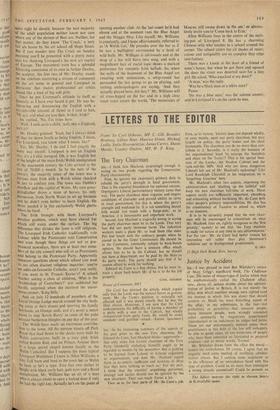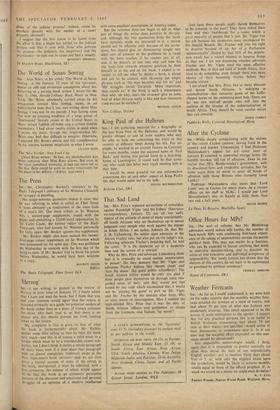Justice by Accident
SIR,—I was pleased to read Ben Whitaker's review of Mary Grigg's significant book, The Challenor Case. The series of miscarriages of justice which may be euphemistically called the Challenor affair, raise, above all, serious doubts about the adminis- tration of justice in Britain. It is not merely the delay with which manifest wrongs were righted (and the manner in which this was done) that should concern us. Much the most disturbing aspect of the affair, in my submission, is the fact—not probability or possibility—that innocent people, many innocent people, were wrongly convicted either summarily by magistrates (experienced stipendiaries) or on indictment by judges and juries. These arc not unfortunately isolated cases; most practitioners in this field of the law will unhappily be able to quote cases, all too numerous, of people who have been convicted on fabricated or perjured evidence—not to mince words, 'framed'
Mr. Whitaker draws from the affair the moral— hasten the ombudsman. Of course, I agree that we urgently need some method of rectifying adminis- trative abuses. But I confess some scepticism as to the efficiency of an ombudsman faced with this type of problem. Could he do more than investigate a wrong already committed? Could he prevent an The Editor reserves the right to shorten letters to fit available space. abuse of the judicial process? Indeed, could he Interfere directly with the verdict of a court properly obtained?
I suggest that the first lesson to be learnt from the affair is that a blight has settled on the judicial process and that it rests with those who activate the process—the judiciary, the magistracy and the practitioner---to seek out its cause and find a remedy.
24 Morden Road, Blackheath, SE3



































 Previous page
Previous page